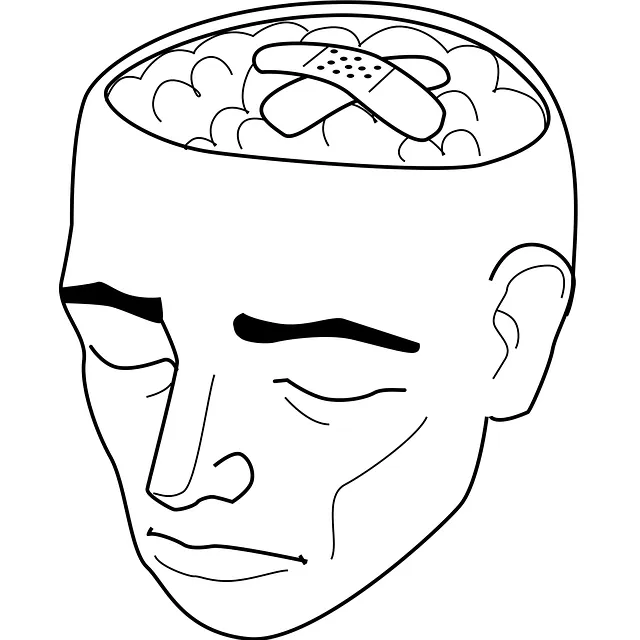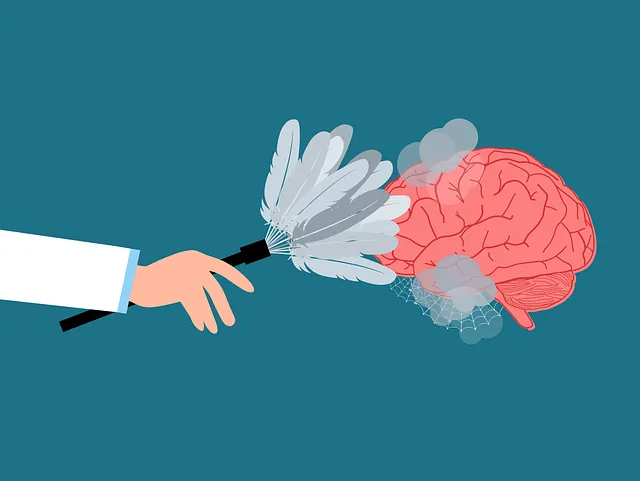The Kaiser Permanente mental health facility in Lafayette offers comprehensive services and advocates for improved access through digital tools like mental wellness apps. These apps should be user-centric, evidence-based, and tailored to diverse needs, integrating features like mood trackers, meditation guides, coaching programs, and anonymous forums. By following these principles, the apps can enhance self-care routines, reduce stigma, and foster community support for holistic mental health improvement, especially for underserved populations.
“Unveiling the potential of digital therapy, this article explores the development of mental wellness apps, focusing on Kaiser Permanente’s services in Lafayette. By analyzing existing resources at this leading mental health facility, we identify key areas for app innovation. From user-centric design to evidence-based practices, this guide navigates the process, ensuring apps cater to individual needs. We delve into strategies to bridge gaps and enhance access to care, ultimately aiming to revolutionize mental healthcare through technology integration.”
- Understanding Kaiser Permanente's Mental Health Services in Lafayette
- Identifying Gaps and Opportunities for App Development
- Designing User-Centric Features and Functions
- Implementing Evidence-Based Practices and Integration Strategies
Understanding Kaiser Permanente's Mental Health Services in Lafayette

Kaiser Permanente, a renowned healthcare organization, operates a dedicated mental health facility in Lafayette, offering comprehensive services to its community. This facility serves as a one-stop solution for individuals seeking support for their mental well-being, ranging from therapy sessions to specialized programs tailored to specific needs. With a team of experienced professionals, they provide a safe and supportive environment conducive to healing.
The mental health services at Kaiser Permanente Lafayette prioritize patient care and include assessments, counseling, medication management, and group support. They also emphasize prevention through educational workshops and initiatives promoting self-care routine development for better mental health. Additionally, their location facilitates easy access, ensuring individuals in need can receive timely intervention. Moreover, the organization’s commitment to advocacy extends beyond its walls, as it actively engages in Mental Health Policy Analysis, contributing to a broader understanding and improvement of mental wellness support systems within the community.
Identifying Gaps and Opportunities for App Development

The development of mental wellness apps presents a unique opportunity to bridge gaps in access and quality of care, especially in areas like the Kaiser Permanente mental health facility in Lafayette. By examining existing resources and needs within the community, app developers can identify specific opportunities for innovation. For instance, while traditional therapy models are valuable, many individuals face barriers such as cost, time constraints, or a preference for digital solutions.
App-based interventions can cater to these diverse needs by offering accessible platforms for stress management techniques, coping skills development, and even cultural competency training tailored to the unique demographics of Lafayette. By leveraging technology, mental health support becomes more inclusive, particularly for underserved populations. This approach aligns with the broader goal of enhancing healthcare provider cultural competency, ensuring that digital tools meet the specific requirements of different communities.
Designing User-Centric Features and Functions

When designing features and functions for a mental wellness app, putting users at the heart of the process is paramount. At Kaiser Permanente’s mental health facility in Lafayette, for instance, developers can draw inspiration from the unique needs and preferences of individuals seeking support for their mental well-being. Incorporating user-centric design principles ensures that the app caters to diverse user profiles, offering personalized experiences that foster inner strength development. Features like customizable mood trackers, adaptive meditation guides, and one-on-one virtual coaching sessions can cater to individual needs, making the app more engaging and effective.
Furthermore, integrating mental wellness coaching programs within the app can facilitate ongoing support, even between therapy sessions. By incorporating tools that promote self-reflection, goal setting, and coping strategies, users can actively participate in their journey towards improved mental health. Additionally, focusing on Mental Illness Stigma Reduction Efforts through anonymous forums or peer support groups can create a sense of community and understanding, enhancing the overall user experience and encouraging continued engagement with the app.
Implementing Evidence-Based Practices and Integration Strategies

When developing a mental wellness app, incorporating evidence-based practices is paramount to ensure its effectiveness and reliability. Organizations like Kaiser Permanente’s mental health facility in Lafayette can serve as models for integrating proven strategies into digital solutions. For instance, mindfulness meditation techniques backed by extensive research have been successfully implemented to reduce stress and anxiety among patients. These practices focus on the present moment, fostering a sense of calm that has shown positive outcomes in clinical settings.
Moreover, a comprehensive mental wellness app should consider integration strategies that promote self-care practices tailored to individual needs. Features like personalized goal-setting, tracking progress, and access to educational resources empower users to take an active role in their mental health journey. Additionally, community outreach program implementation can enhance the app’s impact by creating support networks, enabling peer-to-peer sharing, and providing a sense of belonging, all vital components for burnout prevention and holistic wellness.
The development of a mental wellness app, especially tailored for the Kaiser Permanente mental health facility in Lafayette, holds immense potential. By addressing identified gaps in existing services and prioritizing user-centric design, this app can enhance accessibility and improve patient outcomes. Integrating evidence-based practices ensures that users receive reliable support, fostering a more inclusive and effective mental healthcare ecosystem. This innovative approach could revolutionize how individuals engage with their mental health resources, offering convenience and personalized guidance within the familiar framework of Kaiser Permanente’s Lafayette facility.






